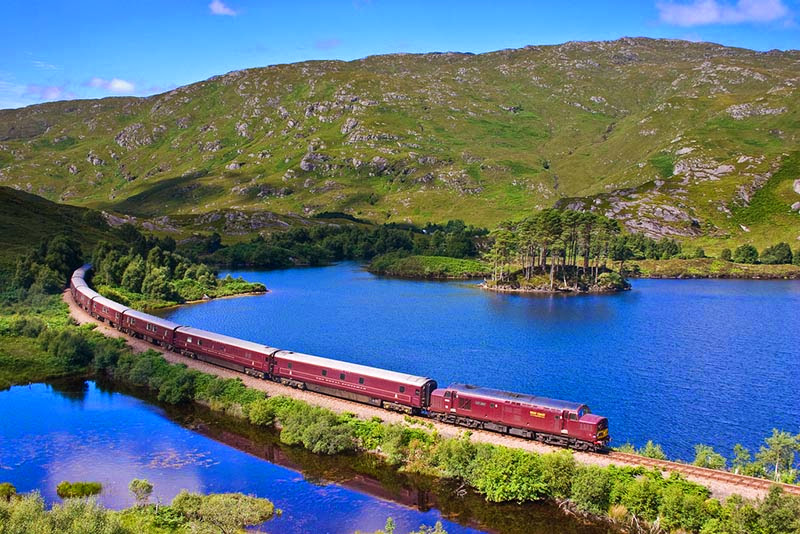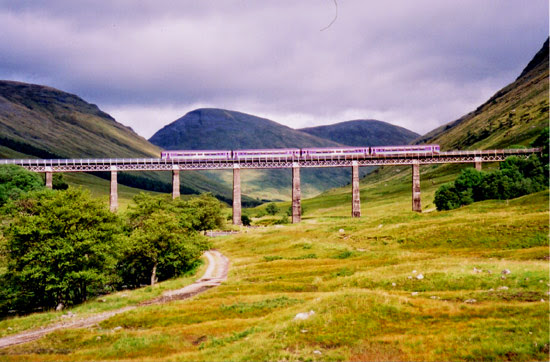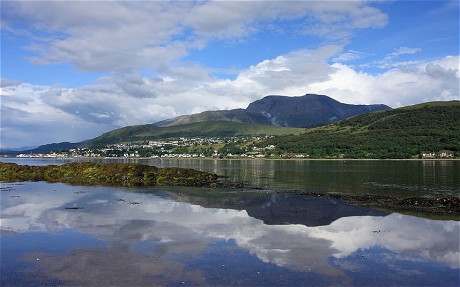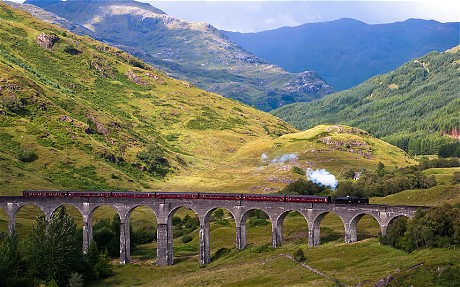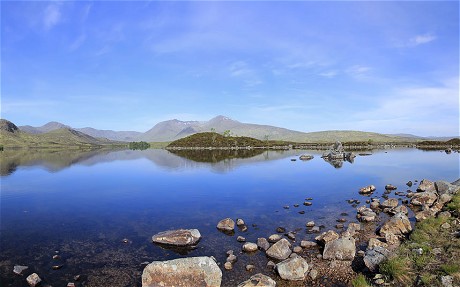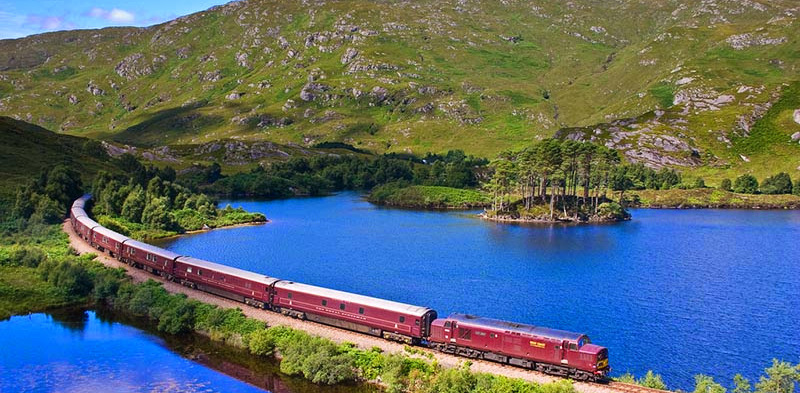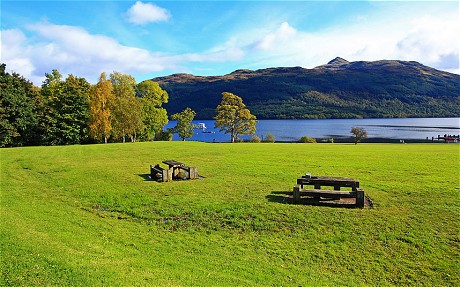In Scotland to reach from Glasgow to Mallaig created a very beautiful rail route in 1880. That route is very beautiful therfore it is seen in Movies Like Harry Potter and The Chember of Secrets. From few year Glasgow to Mallaig rail route includes beautiful routes in worlds.
The West Highland Line features journeys from Glasgow to Fort William, known as the outdoor capital of the UK, and Glasgow to Mallaig where the train crosses the Glenfinnan Viaduct, famous for being featured in the Harry Potter movies. In addition you can travel to Oban, via Crianlarich. The West Highland Line provides impressive views including the Erskine Bridge, Dumbarton Castle, glimpses of the Arrochar Alps and more.
- Train Frequency: – 6 trains each day from Glasgow to Oban. 3 trains each day from Glasgow to Mallaig via Fort William.
- Reach Glasgow from London by overnight sleeper. One departure per day (except Saturday nights) between London Euston and Glasgow Central, calling at most stations.
History
The standard history of the railway is John Thomas’s The West Highland Railway, first published by David & Charles in 1965 and repeatedly revised. In 2005 John Donald published The West Highland Railway: Plans, Politics and People by John A McGregor. There have been various reprints of the 1894 guide By Mountain, Moor and Loch, originally published before the Mallaig line was built.
A cave near Inversnaid is associated with the historical figure of Rob Roy, who appears in Sir Walter Scott’s eponymous 1817 novel about the Jacobite fugitive. Rannoch Moor appears in Robert Louis Stevenson’s novel Kidnapped, set in the aftermath of the second Jacobite Rising. A humorous look at wartime island life is provided by Compton MacKenzie’s Whisky Galore!.
Time
The journey time between Glasgow Queen Street and Fort William is about 3¾ hours, between Fort William and Mallaig just under 1½ hours.
Cost
Advance fares for Glasgow–Mallaig start at £15.70 each way, so the cheapest return is £31.40. The Jacobite adult day return fare is £33, child £19 in standard class, £56 and £31 in 1st class. Prices on the Caledonian Sleeper start at £19 for a single journey.
Location
This holiday is based just outside the West Highland village of Spean Bridge, and you can choose to travel here by road, or follow the length of the West Highland Rail Line, starting at Glasgow.
Route
The journey starts under the 1880 wrought-iron roof of Glasgow Queen Street and winds past soulless distribution sheds and suburban housing to the start of the 100-mile West Highland Railway at Craigendoran Junction. As the diesel engines growl up the bank through leafy Helensburgh, you see ships riding at anchor in the estuary before they disappear behind woods of birch and oak above Gare Loch.
From Garelochhead there is a spectacular view back along the narrow loch to the south before one of those almost theatrical transitions that punctuate the route. The train burrows through a fern-clad cutting and emerges to a panorama over Loch Long where it is joined by Loch Goil. Arrochar & Tarbet station, which once supplied breakfast baskets to northbound passengers, lies between lochs Long and Lomond on a strip of land used as a portage in 1263 by King Haakon of Norway as he sought more places to raid.
The views along Loch Lomond are some of the finest of the journey, the railway running along a shelf cut into the hillside above a dense canopy of trees. A summer ferry links Inveruglas with the idyllically situated Inversnaid Hotel on the opposite shore. The long climb up Glen Falloch beside the birch-fringed river ends at the junction for Oban at Crianlarich and the meeting of three glens.
Once the railway has passed the end of Loch Tulla, it is 32 miles before anything more than a track is seen again. The wilderness of Rannoch Moor is majestic, one of those rare places in Britain where there has been little to upset the course of nature. The pause at Rannoch station usually sees a few well-equipped walkers alight, enough to support a tea-room in summer and the adjacent Moor of Rannoch Hotel. The shed covering the line at Cruach, north of Rannoch station, was built to protect the track from drifting snow and is unique in Britain.
